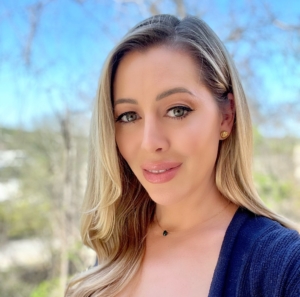Heir of the Cuckoo
 He’s poised with a notepad and pen on top of legs crossed tight like braids. He repeats the question, “When did you find out your father was the main suspect?”
He’s poised with a notepad and pen on top of legs crossed tight like braids. He repeats the question, “When did you find out your father was the main suspect?”
The therapist sits in front of his motivational posters, the ones that frustrate me with their cornball optimism. They bear phrases that come at me from a different world altogether. Yes, I understand there’s no I in team, but I was on team Mom, who is now dead.
I’m considering his question, but I guess my face doesn’t match what’s beneath the surface. I don’t waste words; it takes great effort just to get the bare minimum out. My E5 Sergeant father conditioned me to eliminate phrases like “I don’t know” and “um” or “uh,” so I remain quiet while I wade through memory after memory, trying to find the earliest one where I think I didn’t know. Drying out my clammy hands, I hold them palm up in my lap like I’m here to have my fortune read. I know he’s going to write this down, and I need it to be right. And then he does that thing that most impatient people do when they’re tired or have grown uncomfortable with my silence. He begins to fill in the blanks for me.
Did your sister tell you?
Was it when you visited your mom’s family?
Is there something you’re afraid to tell me?
I’m trying. Truly, I am. And if he’d give me more time, I could chew some words together worth regurgitating. We both steal glances at the clock on the wall between us.
Maybe I overheard one of my aunts who thought because I wouldn’t speak, I also couldn’t hear. It’s possible my older sister Tonya told me, but likely I sensed it the way birds time their migration. I witnessed the abuse. I heard the threats. I felt his wrath. I knew it was coming.
Maybe I overheard one of my aunts who thought because I wouldn’t speak, I also couldn’t hear. It’s possible my older sister Tonya told me, but likely I sensed it the way birds time their migration.
A portion of my reflection in the window next to me catches my attention, and I bristle. Of his three daughters, I’m the one that looks like him, with the tone of dried grass and stone-faced. I’m petrified of growing into someone like him, ever angry and leering, calculating, and I don’t want to be his, the offspring of a cuckoo, which invariably makes me one too.
I can count my age on two hands now, and I do so in order to keep my fingers from pulling on the skin of my lips. I can’t answer his questions, especially when I’m brimming with my own. I give in, finally meet his gaze. Birds’ nests hang from the edges of his ear canals, tufts of hair that something could call home (I use the term home lightly). His thick plastic-framed glasses magnify his pebble-sized eyes.
He builds the scene around me, twenty-eight stab wounds left on our living room floor. Covered up to her chin with the yellow blanket with white flowers. The same one we shared each night since starting over without my father.
That’s an awful lot of times to be stabbed. Did you know this?
He asks it in the same tone one might use after divulging some fun fact about nature. Like he just told me how cuckoos do not, in fact, raise their own offspring. They hide their egg in a smaller bird’s nest, and the momma bird can’t tell the difference. Baby cuckoo birds will often hatch first and grow bigger and stronger because it takes all the food, pushing the biological chicks out of the nest before they even have a chance to hatch. Killing them.
And no, I didn’t know this. I want to thrust the wooden door open and run down the hall. I want to flatten myself against the wall until I blend into the stucco, but I find it safer not to react to the revelation. Did he tell me this to elicit a reaction or genuinely fill in the gaps?
I’ve trained my face not to react. To mimic the expressions around me. Blend in. Worms wriggle within my otherwise empty stomach, but I don’t gag or sniffle, and for heaven’s sake, I don’t cry. Ever.
Dr. Marlburg’s nose repeats the same whistling sound each time he exhales, a high-pitch winded call all his own that fills the air between us. I’m perched on the perimeter of the couch as my words take flight before falling flat on the floor. I can’t take them back.
Why didn’t anyone try to save her?
Why didn’t anyone take her to the hospital?
It was Tonya and Uncle Chip who found her bundled up on the floor like that. They backed out of the house and into the busy street and flagged down a passing ambulance on Holabird Avenue. At eight years old, paramedics and doctors still fixed us all. Well, maybe not old people, but Mom was only twenty-seven.
I wonder if the doctor notices his melodramatic nose song marking time while he formulates a reply. It takes 4 or 5 beats into his nasally solo before he laments,
It was too late.
***
I’d like to say I grew up, but it’s doubtful I was ever a kid. It’s probably more apt to say I aged. In and out of psychologist rooms, on and off antidepressants. I’m not crazy enough to not recognize that I can’t make it through life without some sort of mental intervention every few years. It’s more of a tune-up than a breakdown, a preemptive measure to ensure the tornado of thoughts is still somewhat rational. Not everything is curable. Some trauma waits patiently in the recesses of the mind. I can feel Mom’s presence on a random Tuesday while I’m pumping gas when Right Here Waiting for You by Richard Marx, one of her favorite songs, plays over the speaker, and everything is going to be ok. But then, on a January day when I’m overflowing with joy and memorized wedding vows, I’m acutely aware Mom isn’t there to celebrate, and I have no father to walk me down the aisle. That crushing feeling gets caught in my throat, and I try to wash it all down with vodka and cake. I thought for sure I’d receive some other-worldly sign that she was there with me on my wedding day. Mom has died a million deaths with me this way.
Now it’s a female doctor I’ve found myself sitting in front of. She’s motherly, and I can’t help wondering if she has her own children and what she would have been like if she were my mother. It’s an agonizing game I torture myself with: what if.
Today we discuss my father never being charged with any crime. The detectives are shaking their heads—there’s not enough evidence. I tell the therapist what it was like to be sent back to live with him, and the first time I met his new wife. I sat on the lid of the toilet, watching her lean into the bathroom mirror, rubbing a shade of silver Revlon eyeshadow over her eyelids, “People say I look like Lynda Carter, the woman who plays Wonder Woman,” she tells me. I nod my head in agreement despite not knowing who either of them is. Lynda comes complete with her own daughter, Melissa, from a previous relationship, their bond, a daily reminder of what I lost.
Melissa and I are only a month apart in age. My blonde wisps alongside her crown of chocolate curls. Even so, strangers look over our matching outfits before asking if we’re twins. I feel like I’ve fooled them, successfully becoming an imposter egg in someone else’s nest. Lynda dresses me like her own, but the hand-drawn portraits are of only one daughter she considers her own, which stuff me with a sort of mad longing that pulls me in and then flings me into dust-filled corners. Survival manifests itself in peculiar ways. I find myself pining for her attention, outperforming Melissa in every way that I can. I want the very thing I loathe, Lynda, all to myself.
I recall watching the easy way she brushed Melissa’s curls, sometimes doing it just for fun, trying out handmade bows and different hairstyles. Even though no one asked me, I declare, “I’ll do my own hair, thank you very much,” wetting my head with a squirt bottle, then brushing it straight back, letting it dry and fall any which way. Watching them from the top of the stairs, alone, I rattle out the typical, “you’re not my mom,” even though, again, no one asked.
The therapist takes notes. Who knows what exactly. I start in on another story, a visit to Melissa’s grandmother in Ohio. I follow the cacophony of chimes to a lower-level room, where I find Melissa standing beneath a massive wooden clock with intricate carved designs and moving parts.
“This cuckoo clock is gonna be mine when I’m older,” she whispers. She tells me the story of how her grandfather bought it for her grandmother while he was stationed in Germany.
She stares up at it in awe, and I play along. Melissa waits for time to pass as I’m willing it to turn back. I’ve never seen a cuckoo clock, never even heard of one. Now that I think about it, I’ve never heard of an inheritance either and didn’t receive a thing of Mom’s when she died. All her belongings and pictures disappeared almost the same time she did.
I don’t remember when it became obvious to me when Lynda caught on. The moment she distinguished the fraud from her own and sounded the alarm, increasing her distance from me. The ruse feels trivial now. It’s possible she always knew, raising me not as her own, but raised all the same.
The hour comes to a close, and the therapist asks if I have anything else I’d like to mention before our time is up.
And I do. How long is it supposed to take to heal? When will I no longer feel pangs of jealousy when I see happy families?
But what creeps off the ledge of my tongue and glides around the room is:
Is it ever too late to be saved?
Shannon Tsonis is a current MFA student at Goucher College, where she is completing her first full-length memoir. Her nonfiction can be found in Little Patuxent Review, Memoir Magazine (#metoo People Choice winner), The Ocotillo Review, Sky Island Journal, and others. She lives in Pennsylvania with her husband and young daughter and hopes the years of therapy continue to pay off, because they were expensive. Contact her across social media or shannontsonis.com





